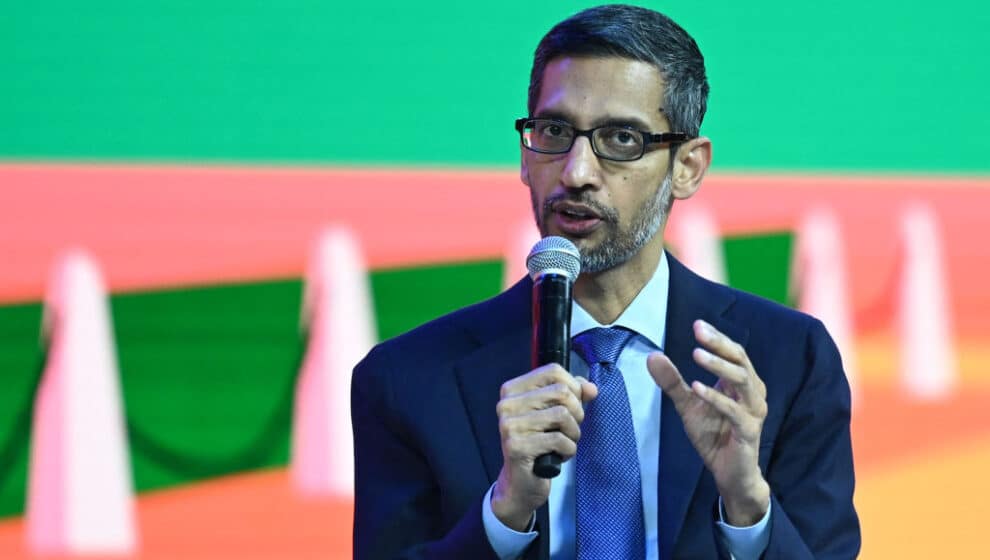Google hosted a press event on Wednesday to reveal its newest slate of artificial intelligence (AI) products—pressing the importance of innovation and safety.
Key Details
- Google hosted its annual I/O developer conference on Wednesday at the Shoreline Amphitheatre in Mountain View, California.
- It revealed a new slate of AI products, including editing tools that can repair photos if something was cut out of frame, a predictive feature for emails that helps write and expand on themes, and implementation into its search engine, as well as safety features that will include Google watermarks and metadata for AI-generated photos, Forbes reports.
- Implementing the technology into Google.com marks the largest change in the search engine in decades, even shifting the terminology from “search” to “converse,” Vox notes.
- The phrase of the night was “bold and responsible,” with the company repeatedly impressing that it feels a responsibility to catch up to rival AI developers and address public concerns about the dangers of the technology.
Why It’s Important
Google fell behind in the “AI arms race” relatively early and has struggled to catch up. While Microsoft partnered with ChatGPT developer OpenAI to implement chatbot features into Bing in December, Google only revealed its alternative Bard AI in February, just after ChatGPT announced it had gained 100 million subscribers.
Early reactions to Bard were mixed, with the company’s stock valuation dropping after investors felt the features were lacking. Early tests showed that Bard would also frequently cite incorrect or biased information.
Google faces a challenging “Catch-22.” It has to catch up to Microsoft and reassert itself as the world’s leading search engine. Still, it also needs to address the mounting fears and concerns about the proliferation of AI before the technology is abused or used malignantly. Its “bold and responsible” tagline is an explicit statement that these two priorities must coexist, even in tension.
Notable Quote
“While there’s a natural tension between the two, we believe it’s not only possible but, in fact, critical to embrace that tension productively … We must also acknowledge that it’s an emerging technology that is still being developed. And there’s still so much more to do,” says Google SVP James Manyika.
